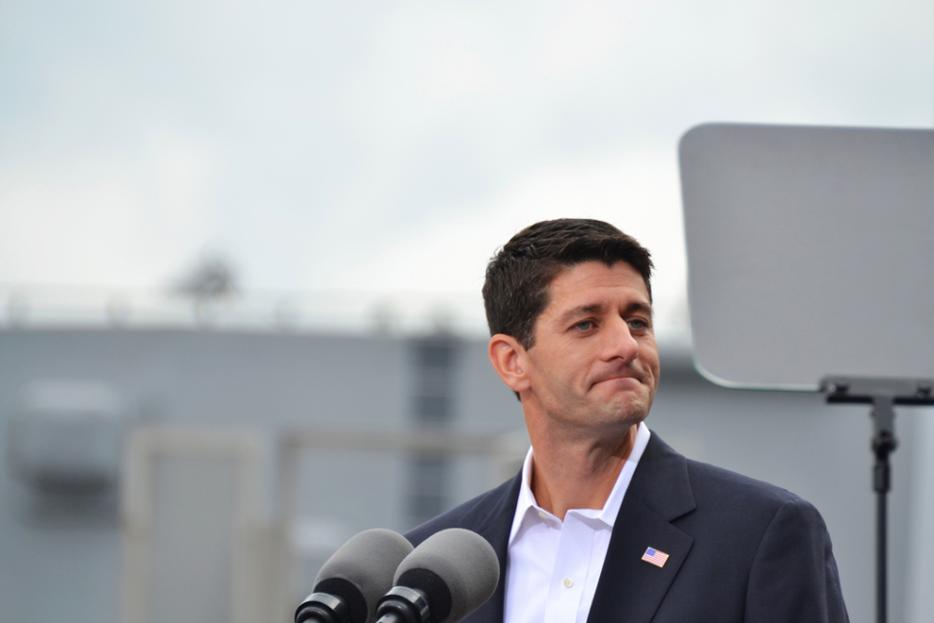Calvin Trillin is back in New York. Back from the two summer months he spends each year in Nova Scotia, which he claims qualifies him as 1/6 Canadian content. “I have long maintained that for every six books of Mordecai Richler’s on the Canadiana shelf, there should be one of mine.” - “Answer Man” In the week since he’s returned, he has yet to ride his bike to Chinatown to relieve what he once called, “the anguish of extended Chinese food deprivation.”
He has, however, completed a fair chunk of his epic poem, a retelling of the U.S. presidential election in satiric, rhyming couplets forthcoming as the book Dogfight. Up to and including both parties’ conventions, he tells me over the phone as we catch up with what’s happened in the campaign since we last spoke. That was before Mitt Romney had officially clinched the Republican nomination and well before he had chosen Paul Ryan as his running mate. After I mention how excited I was to find a first edition of my favourite of his books, Alice, Let’s Eat, in New York a few weeks before, His reaction: “I hope you didn’t pay more than about sixty cents. Unless it’s autographed, in which case it’s worth about forty-five cents.” we start running down everything that’s happened.
As a poet, are you happy about Paul Ryan as the vice-presidential nominee?
I would be happier if his name were “Paul Rying” with a g. Unlike Romney in the South, I don’t do the dropped-g rhymes, but Ryan still rhymes with “lion” and a few other things.
“Hawaiian”
Actually, I think it rhymes with “faux Hawaiian.” I can’t remember what the percentage was but something like 52 percent of the people who voted in the Republican primary think Barack Obama is a Muslim. So I think “faux Hawaiian” is what they would call “obviously born in some other place.”
At least Ryan is iambic.
Yeah. I’m fairly unhappy with the names in general. I use “Romney” a little bit but Mitt and Newt are good and sometimes just for rhythm’s sake I use “The Newtster” or “The Mittster” but my candidates, alas, like “John McCain” and “Ross Perot” are things of the past.
And what did you think of the choice politically?
Ryan, I think is generally—at this point in the campaign, things might change with the debates of something—is somewhat of a disappointment. Started out as this Golden Boy who also is comfortable with fellow human beings, unlike Romney. And I think the convention speech was just a big mistake. I mean the fact that he attacked Obama for supposedly stripping seven hundred and some billion dollars off of Medicare, which not only isn’t true but it’s the same figure that he had in his budget and then attacked Obama for having a GM plant close on his watch which actually closed when George Bush was president. And his marathon time was the sort of thing that sticks in people’s minds, where he was rounding it off by an hour and a half.
It’s certainly unfortunate that you won’t drop the “g” to rhyme with his name.
Yes, well, I’ve faced that problem before and it turns out it’s more in the middle of the line than in the end. And Paul doesn’t work. Mitt and Newt are easy because they’re the only people named Mitt and Newt in public life. But Paul doesn’t work because of Ron Paul and Rand Paul and Paul this and that.
I did write a poem about Ayn Rand, his patron saint, or I say, his Gordon Gekko, to the tune of “Blue Moon.”
Ayn Rand. Because of you I’m now free.
Because of what you have taught
I know it’s all about me.
Ayn Rand. You taught we should be ambitious.
To strive to be avaricious.
Since money’s truly delicious.
And we shouldn’t share a nickel of this money
With citizens who can’t prevail.
The government is not the Easter Bunny
The poor are weaklings who deserve to fail.
Ayn Rand. Before you, I was immobile.
But then you taught me to know
That being selfish is noble.
As you may know, he hands out Ayn Rand’s books to his interns. Gives them as Christmas presents.
Otherwise, what did you think of the Republican convention? There seemed to be a lot of material there for you to use.
I thought that Clint Eastwood at least spoke in a normal tone of voice. You can say what you want about his speech—and there’s quite a bit to say about it, I suppose—but the rest of them... there was a lot of shouting. A lot of “The greatest country on the history of the earth” sort of talk in the Republican convention. And as usual they had more dark-skinned people onstage than they did in the audience. They always outnumber the audience with the speakers of colour.
Are you going to make much of Eastwood in the poem?
No, I’m virtually done with the part that I’m going to hand in Monday, which is through the conventions. I mentioned Eastwood in two or three couplets. You know, the conventions are so rote now and so much of a show and there’s nothing actually happening there that I haven’t concentrated much on them.
How about the Democratic Convention?
I talk quite a bit about Bill Clinton, whose speech I thought was brilliant. And I included a poem I wrote for this week’s Nation which is called, “Convention Bounce.”
From Charlotte Obama had hoped for a bounce.
It came in a way unforseen:
When William J. Clinton had spoken his piece,
He’d furnished a strong trampoline.
I think if Obama wins, I think they’ll say that the Clinton speech was certainly the turning point, even though I suspect the conventions are watched by the converted to start with. But Obama seems to be opening up a bit of a lead now and it may have to do with that.
Especially in the GOP speeches, the talk was all about “Jobs, jobs, jobs, jobs, jobs - small business - jobs.” They didn’t really talk about the deficit, but I wanted ask you one question about their plan, “What’s going to happen when the deficit-reduction component begins to bite?” This is Trillin’s own question, written in 1993 to be the single thing he could say about Bill Clinton’s economic plan that would not reveal that “I have no understanding of economics whatsoever.”
Well, that’s definitely what I used to say when Clinton got in and I would say the same thing now, even then and now I’m not quite sure what it means. I use a lot of words that I’m not quite sure what they mean. I mean, I’ve been known to say “post-modern” and things like that when I’m not quite sure what it means.
Yeah, they talked a lot about jobs. I guess that’s the main thrust of the Republicans: Here is a man who knows how to create jobs and has been in business. He actually suggested at one point that a few years of running a business experience should be required for the presidency. I wrote a poem about it that ended up saying that considering Harry Truman’s accomplishments, it may be that the business should have to have failed before you were qualified, since Harry Truman was legendarily known as a failed haberdasher in Kansas City, my sainted hometown.
It’s always struck me as funny when people say they want to run the government like a business. Every business that I’ve worked in is kind of dysfunctional and inefficient in one way or another...
Oh, absolutely. Or dishonest. And actually, there’s not much that running a government has to do with running a business. I think the candidates keep repeating it because it sounds good. And it sounds like, “Oh, we’ll get Harry to hold up the Transportation end better and save some money by using a new printer,” or something like that. And it doesn’t have anything to do with that really.
I think one of Romney’s problems is that he’s running on this business experience. He only had four years in government and his greatest accomplishment is something he now says he’d repeal. So he can’t really boast about his record as governor of Massachusetts. And starting with Newt Gingrich and Rick Perry they sort of muddied up Bain Capital enough that it’s not clear whether it’s an asset or a liability. And that’s obviously what the Democrats are hoping. So that leaves him with a guy who ran the Olympics once, which is not exactly presidential qualifications.
The last time we spoke you talked about Barry Goldwater and how he wouldn’t be able to run in a Republican primary any more. I read in The Atlantic yesterday that his granddaughter was a guest of the Arizona delegation at the Democratic convention and awarded the delegates to Obama.
Is that right? I hadn’t heard that. And you know some of these things that the Republicans are so against, like OSHA (the Occupational Safety and Health Administration) and the EPA (Environmental Protection Agency), these were put in by Nixon! It’s not really the same sort of people who used to be in the Republican party.
And the health care, the mandate to buy health insurance, which they find so socialistic and oppressive, is a Republican idea. It wasn’t just that it was used in Massachusetts, it came out of the Heritage Foundation, a right-wing think tank. And it was in a bill introduced by Bob Dole. It was the Republicans answer to the much-hated, horrifying single-payer system like you have in countries like Canada.
I have a sea chantey in the book now called, “We Hate It ‘Cause It’s His” and that’s why they call it Obamacare. The actual specifics of it they invented.
Coming from a Canadian perspective, it’s so inconceivable that someone would be opposed to that. It’s peculiar for us, I think.
Well it is. And Americans have been taught that everybody in Canada of course hates the Canadian system. And the Canadian system is not without problems, simply because there has to be some way of rationing health care one way or another. The way we do it is by how rich you are. But I think Americans would be astonished to know that when Canadians were asked by the CBC who was the greatest Canadian of all time they named Tommy Douglas, the father of the health care system. Supposedly they all hate the health care system. They may have named him because he’s Kiefer Sutherland’s grandfather.
That’s why I voted for him.
I wanted to read you a funny quote from Goldwater’s granddaughter. “Goldwater’s granddaughter” is very hypnotic when said aloud repeatedly. There’s a bit of a history of course between him and George Romney from the 1964 convention, when Goldwater was nominated and Romney wouldn’t endorse him.
I think he walked out of the convention as I remember. I’m not sure. But he certainly wouldn’t endorse him. He said he was an extremist.
She was asked what she thought her grandfather would say about Mitt Romney and she replied, “I think he’d say, ‘His father was a real weenie. He left me hanging.'”
But actually his father was a pretty good man. And his father released something like twelve years of his tax returns.
I thought there was an irony in the fact that George Romney was the moderating impulse on Goldwater, to pull things more towards the centre and now you have Mitt Romney trying to pull—or the whole party veering towards the right.
I think that was the point of making Paul Ryan the vice-presidential nominee, to satisfy the right and the Koch Brothers—“The Black-Tie Populists” as I like to call them. His problem in that regard is that he had to get so far right to satisfy them in the primaries that now I think he’s going to have trouble moving to the middle.
You’ve said that since John Allemang isn’t writing poetry for The Globe and Mail any more that you are the only deadline poet left... Trillin serves as ‘deadline poet’ for The Nation, writing a weekly poem on the affairs of the day, some of which also appear as sidebars and supplements to his epic presidential poems.
But I think we certainly kept John in the International Deadline Poets Organization, IDPO. He’s still a member. Actually, when The Globe and Mail quit running his poems, we were going to have the entire membership Entire membership of the IDPO: Allemang and Trillin. picket The Globe and Mail but that plan fell through. We didn’t think we really a mass to do it. But he’s still a member. I said at one point we might say his membership was hanging by a thread but that would be a metaphor and we discourage metaphors.
It got me thinking about Tom Lehrer and That Was The Week That Was because my parents had the album at home.
Yeah, I listened to one of his albums on the way to Nova Scotia this year. I don’t know where I got it. I guess it was just around the house from years ago but I think it was one of his concerts. It was wonderful. He was really clever.
I was looking him up on Wikipedia and in the entry for That Was The Week That Was, I was surprised to find out that you wrote for it as well.
It was originally an English show and I wrote for the American version of it. I didn’t write sketches and stuff—I did for an earlier show. There was a period for about 15 minutes when political satire was popular, even at the networks, and I wrote for a show that people were trying to get on. A couple of the people from Beyond the Fringe were involved with it, Peter Cook and Jonathan Miller. And it ended up as segments on the Ed Sullivan Show, which to say the least did not work out very well.
But then I did write for That Was The Week That Was and I would just go over there with sort of two-liners for the news guy to read... It was either the news guy or David Frost. Trillin adds: One of the greatest things ever said was Alan Bennett, the fourth member of the Beyond the Fringe crowd, at Peter Cook’s memorial service saying—Peter Cook was somewhat self-destructive—“I’ve read in many of these press reports that Peter was remorseful about how he lived.” He said, “Nothing could be further from the truth. I knew him for forty years and the only thing I ever heard him express regret for was that once in a summer house we had rented in Connecticut, he saved David Frost from drowning.”
Anyway, I did write for them for a little while but that was sort of the end for my TV writing career.
You said that networks had no appetite for satire at that time.
Well, it was the flavour of the week at that time. But it was literally not many weeks. Two months or something. It didn’t last long.
But now there’s The Daily Show and Stephen Colbert—
Oh yeah. And I think The Daily Show is brilliant because they approach it in a totally different way. I think normally That Was The Week That Was and those kind of shows did comic sketches which are very difficult. And The Daily Show has just an entirely different approach to it with what amounts to sort of fake news and wonderful use of clips. And it’s partly just the times. It’s mainly Stewart but it’s also partly technological improvements so you can show people twenty clips in a row and use all sorts of visual devices that just weren’t available in those days.
One final question: the last time we spoke, I asked if you wanted to make a Sabbath-gasbag type prediction and I said that I would ask you again.
You know, I’ve guarded my reputation for sagacity by waiting any time I do a story on a political campaign until it’s over. So I’m not much of a predictor. I would predict that the campaign’s going to get nastier now. But people have been predicting that for a long time. I think that’s a pretty obvious thing, with all this money in it.
I met a guy this summer in Nova Scotia who is involved with campaign fund things in Canada. You know, how much people can use and all that. God, what a civilized way to do this! Now there’s so much money in it that it’s just going to be just a mud pit, I think. “It’s just going to be a mud pit.” That counts as a prediction, doesn’t it? Mission accomplished? No need to ask again next time?






